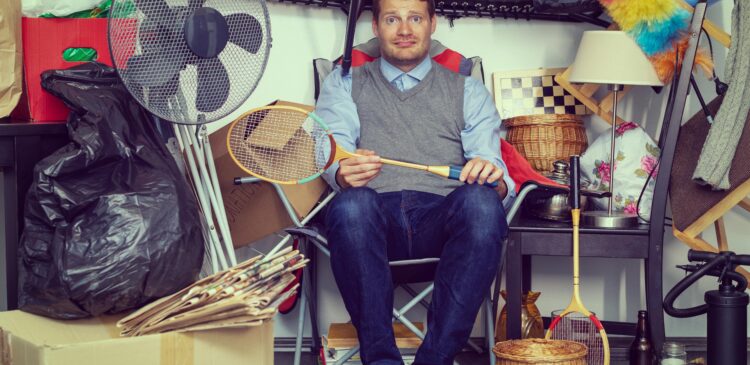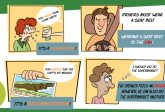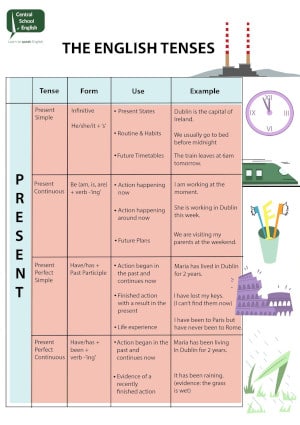Expressing Possession

We all own things. We all have possessions. Maybe you’re a materialist – someone who loves material possessions. Or you could be a minimalist – someone who lives with very few possessions. On the other hand, you could be a hoarder – someone who finds it very difficult to throw things away. One thing is certain: you have some possessions.
There are several ways to express the idea of possession or ownership in English. These ways include:
- The possessive ‘s’
- Possessive adjectives
- Possessive pronouns
- The verbs ‘own’, ‘belong’ and ‘possess’
This blog post will explain these ways of expressing ownership.
The good news is – it’s not very difficult. But – like most things when it comes to learning a language – it takes a bit of practice!
The Possessive 's'
Nouns in English have a possessive form. To change a noun to the possessive form we add ‘s to the noun. For example:
boy – boy’s
woman – woman’s
doctor – doctor’s
The possessive form normally comes before another noun. For example:
The boy’s room.
The woman’s ticket.
The doctor’s pen.
We can use the possessive form with both singular and plural nouns.
This can sometimes be confusing! The important thing to remember is the position of the apostrophe (‘).
Singular nouns
Let’s look at our examples again:
The boy’s room.
The girl’s ticket.
The doctor’s pen.
Each of these examples refer to a singular noun – one boy, one woman and one doctor. We simple add ‘s to the singular noun.
Singular nouns ending in ‘s’
When a singular nouns ends in ‘s’ we can either use ‘s or just add an apostrophe (‘) after the s without adding another s. For example, we can write:
James’s house or James’ house
Jesus’s mother or Jesus’ mother
Harris’s opinion or Harris’ opinion
Note that when we speak, we pronounce two ‘s’ sounds.
Plural nouns: regular
Now let’s look at some regular plural nouns which we form by adding s to the singular noun:
boy – boys
girl – girls
doctor – doctors
To make these regular plural nouns possessive we do not add ‘s, but simply add an apostrophe (‘) after the plural s:
The boys’ room. (2 or more boys, 1 room)
The girls’ tickets. (2 or more girls, 2 or more tickets)
The doctors’ pens. (2 or more doctors, 2 or more pens)
Plural nouns: irregular
Now let’s look at some plural nouns which are not formed by adding s:
child – children
man – men
woman – women
To make the possessive form of these plural nouns, we add ‘s:
The children’s bicycles. (2 or more children, 2 or more bicycles)
The men’s shoes. (2 or more men, 2 or more shoes)
The women’s pens. (2 or more women, 2 or more pens)
The Possessive 's'
- Singular nouns: add ‘s : The boy’s room
- Regular plural nouns: add apostrophe after the plural ‘s’ : The boys’ room
- Irregular plural nouns: add ‘s : The children’s bicycles
Possessive Adjectives
The possessive adjectives are:
my your his her its our their
Possessive adjectives always come before a noun. Here are some examples:
This is our house.
Emma loves her job.
The dog is wagging its tail.
Have you seen my bike?
Possessive Adjectives
- my, your, his, her, its, our, their
- Always come before a noun
- For example: my car, his dog, our house</strong
Possessive Pronouns
The possessive pronouns are:
mine yours his hers ours yours theirs
Possessive pronouns stand alone as a subject. This means they are not followed by a noun. Note that their is no possessive pronoun for the pronoun ‘it’. Here are some examples:
This house is ours.
I love my job and she loves hers.
Is this phone yours?
I can see our car but I can’t see theirs.
Possessive Pronouns
- mine, yours, his, hers, ours, theirs
- Do not come before a noun
- For example: The car is mine. That dog is his. This house is ours.

The verbs 'belong', 'own' and 'possess'
We can also use the verbs belong,own and possess to talk about our possessions. It is not common to use the verb possess.
Belong
We always use the preposition to with the verb belong:
The car belongs to John.
That book belongs to Chris.
The castle belonged to the Queen.
Own
John owns the car.
Chris owns that book.
The Queen owned the castle.
Possess
The verb to possess is quite formal and is more common in written English than spoken English:
The museum possesses many important artifacts.
In the past, common people possessed very little.
The Queen possessed a vast amount of land.
Test Yourself
Vocabulary
Possession: Something a person owns
Ownership: The state of being an owner
Materialist: Someone who values material objects over intellectual or spiritual things
Minimalist: Someone who lives life with as few material things as possible
Hoarder: Someone who buys too much and doesn’t throw anything away.
To wag: To move to and fro as a dog wags its tail.
Thank you for reading our post. You’ll find more English grammar tips elsewhere on our site and if you’d like information on our online English courses or our English courses in Dublin, please do not hesitate to contact us.






